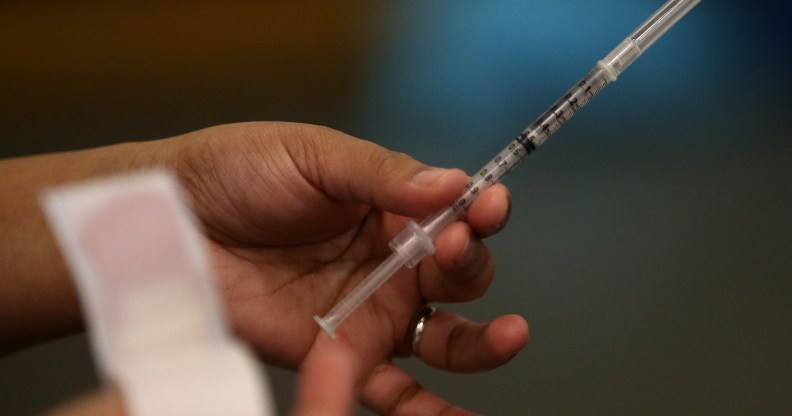Trial finds weekly injections suppress HIV viral load for ‘up to 17 months’

A Pharmaceutical company has announced that a once-a-week injection can offer a “complete viral-load suppression” for up to seventeen months.
While still at the trial stage, an ongoing extension study of PRO 140 monotherapy, including a trial of 23 patients, has proven hopeful for a replacement to daily combination therapy.
Instead of taking daily pills, the new drug hopes that a weekly injection will effectively replace the need for daily antiretroviral drugs.
CytoDyn Inc made the announcement this week that, with more trials, the treatment “could present a significant opportunity to treat HIV patients.”
The company said in the announcement that, should the further trials be successful, they could become publicly available from 2017.
“The company believes that complete virologic suppression through treatment with a single agent, PRO 140, a safe and efficacious antibody, rather than through the widely used HAART combination therapy, could present a significant opportunity to treat HIV patients.
“Based on these monotherapy results, the company plans to file a second Phase 3 protocol for PRO 140 monotherapy with the FDA. CytoDyn is currently conducting a pivotal phase 3 trial for PRO 140 as an adjunct therapy with expected commercialisation in 2017.”
The company filed a request for Breakthrough Therapy Designation with the FDA for PRO 140.
This would mean the treatment could become available to patients with virologic failure, which means other medications no longer work for them.
Another trial backed by Johnson & Johnson as well as GlaxoSmithKlein, tested whether an injected drug taken once every eight weeks could effectively suppress HIV.
The head of J&J’s pharmaceuticals Paul Stoffels, said in November that the drug could prove to be “transformational” in the way HIV is treated.
Another potential HIV vaccine is set to begin human trials, after a promising extended trial on animals.
The vaccine was created at the Institute of Human Virology, at the University of Maryland School of Medicine – headed up by esteemed HIV researcher Dr Robert Gallo.
Following promising results in an animal trial, the researchers are testing out a potential vaccine that could prevent or drastically reduce the changes of HIV infection.
Last January, Bill Gates predicted that a HIV vaccine will be made available in the next fifteen years and recently donated $6 million to research a vaccine.

